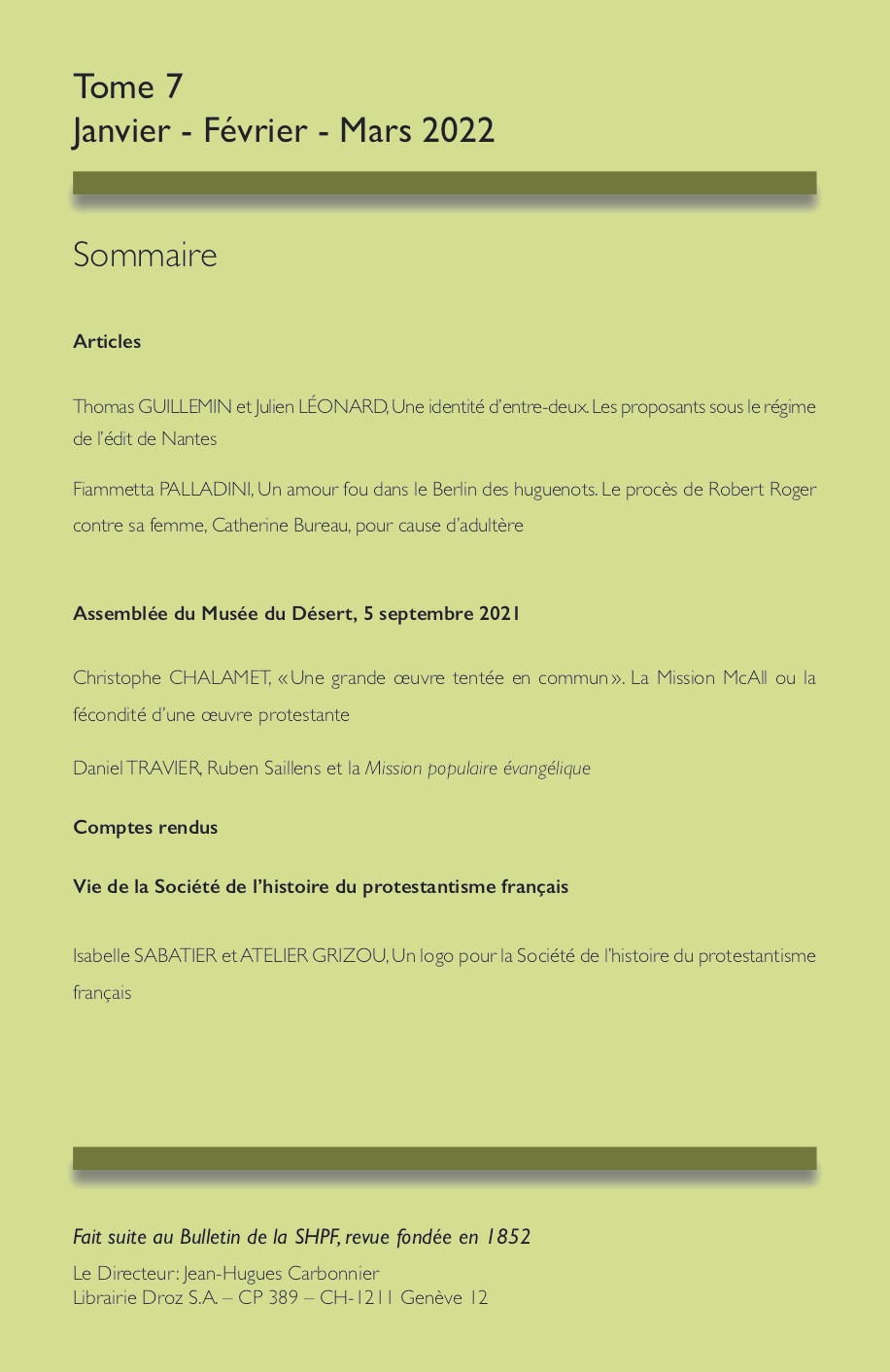Une identité d’entre-deux
Les proposants sous le régime de l’édit de Nantes
Abstract
This article aims to shed light on a specific, albeit rather vague status held by pastors during their careers in the kingdom of France under the Edict of Nantes, namely that of a proposant.This term, which is used without definition in the Discipline, designates students of theology who are at the end of their studies, as well as those who are in search of their first pastoral position. The present analysis combines anthropological and cultural approaches, associating qualitative and quantitative readings, by mobilizing different types of sources: institutional sources (acts of national and provincial synods, registers of academic councils), private sources (correspondences, notes), and eristic sources. The intersection of these sources reveals that the identity of the proposant was that of an “in-between” within the French Reformed churches. A proposant was no longer a student, but also not yet a pastor. A certain number of constraints weigh on the proposants, as they had to follow the values of a “good pastor,” and were dependent on a church, synod, or patron for the financing of their studies. During their training at an academy, the proposants formed a clearly identified body within the institution, which allowed them to take certain initiatives and even demand respect for their particular status. The proposant also received practical training with an existing pastor, and could play an active role in the life of the congregation, particularly within the consistory. At the end of his training, the status of a proposant changed within weeks, first, before a provincial synod, through an examination following the standards prescribed in the Discipline, and then, before his new church, through the imposition of hands by deputies from the same synod. Until this ritual gesture was performed, the proposant remained a pastor in the making.
Keywords
Proposants, pastors, synods, academies, training, students, theology, Churches
How to Cite
More Citation Formats
Most read articles by the same author(s)
- Julien Léonard, Julien GOEURY, La muse du consistoire. Une histoire des pasteurs poètes des origines de la Réforme jusqu'à la révocation de l’édit de Nantes, Revue d'histoire du protestantisme: Vol. 2 n° 4 (2017): Regards croisés sur le fait religieux minoritaire en France et en Europe
- Julien Léonard, Mathilde MONGE, Des communautés mouvantes. Les « sociétés des frères chrétiens » en Rhénanie du Nord. Juliers, Berg, Cologne vers 1530-1694, préface de Gérald Chaix, Revue d'histoire du protestantisme: Vol. 1 n° 1 (2016): Varia
- Julien Léonard, David AN DER LINDEN, Experiencing Exile. Huguenot Refugees in the Dutch Republic, 1680-1700, Revue d'histoire du protestantisme: Vol. 2 n° 3 (2017): Varia

